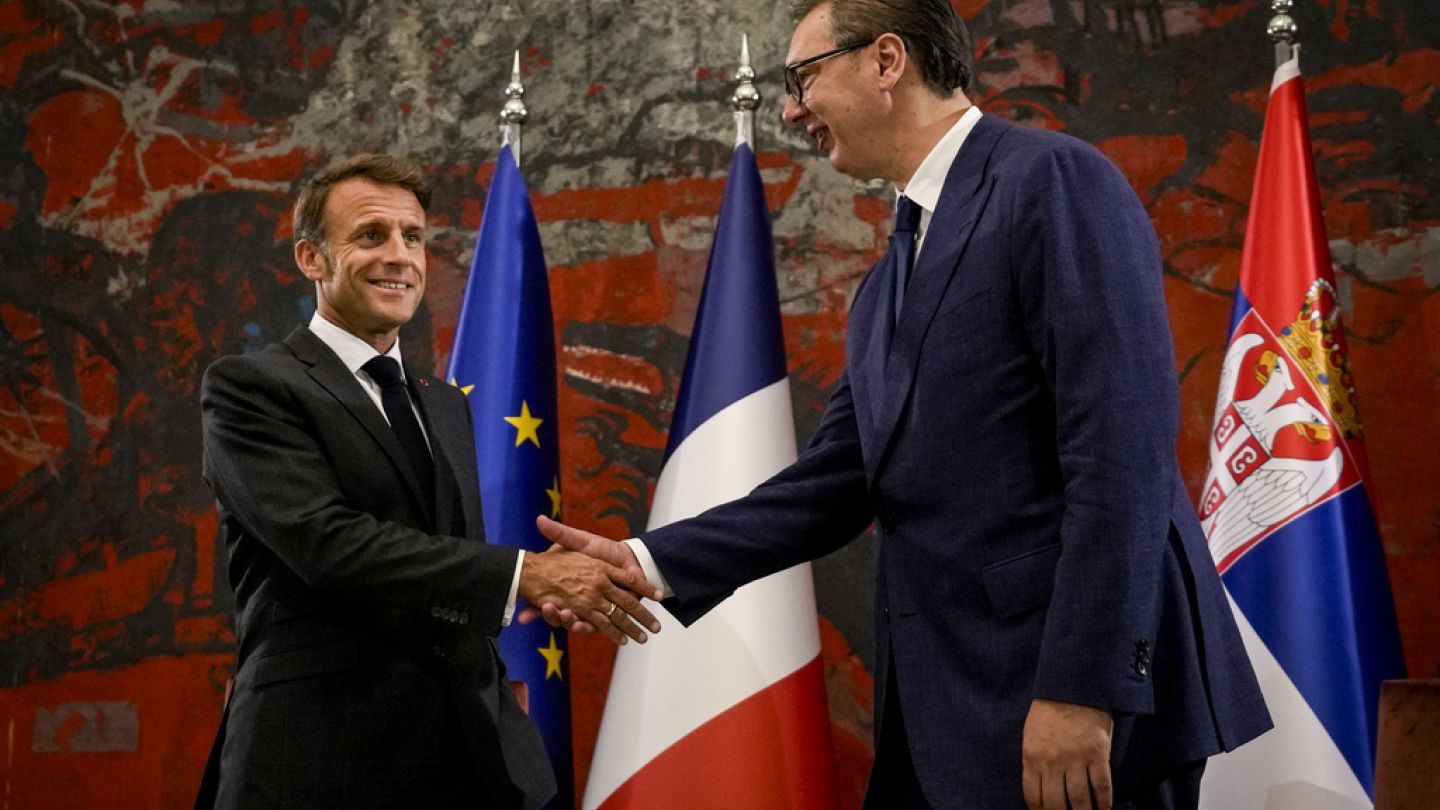Serbia's President Vucic's visit to Paris: 'Strategic' support from Macron
The visit of Serbian President Aleksandar Vucic to Paris took place amid unprecedented nationwide protests against his government.
French President Emmanuel Macron met with his Serbian counterpart Aleksandar Vucic on Wednesday in Paris, during a time when Vucic is facing increasing political pressure in his country, for a private working dinner. The Elysee did not initially make an official statement about the meeting, including what topics were discussed. However, hours later, Macron shared key takeaways from the "long discussion" on the social media platform X. In his post, Macron stated, "First of all, I reiterated France's importance to Serbia's democratic and European destiny." Macron expressed confidence in Serbia's ability to "return to the path of dialogue" and called on the future government to continue the "expected reforms" and to enhance the country's recent economic progress. The visit coincided with a period of mass protests against the government in Serbia. Protesters accuse Vucic's government of corruption and violence. Meanwhile, a group of about 100 Serbian students is set to travel to the European Parliament in Strasbourg next week to alert EU officials about the situation in their country. Many Serbian students feel that they are not receiving enough support from the European Union, despite having significant backing in their own country. The incident that triggered the protests occurred in November when the concrete roof of the Novi Sad train station collapsed, resulting in the deaths of 16 people. The government was held responsible for the incident, leading to broader discontent against Vucic's populist administration in Serbia.
Significant Economic Interests for France
Despite the political turmoil, France has significant economic interests in Serbia. Last summer, Belgrade purchased 12 French Rafale fighter jets for a modest sum of 3 billion euros. On Wednesday, Vucic confirmed to reporters that Serbia would pay the second installment, exceeding 400 million euros, on Thursday. Macron sent a clear message of support to Vucic by confirming France's participation in the 2027 Expo in Belgrade through a statement on social media. France is also involved in broader infrastructure and energy projects in Serbia. The French company Vinci operates Belgrade's airport, and Michelin manufactures tires in the country. There are also discussions about France assisting Serbia in establishing nuclear power plants.
Another significant topic on the agenda on Wednesday was the customs tariffs imposed by Donald Trump. Serbia has been the most affected country in the region, facing a 34% customs tariff, which is higher than the 20% tariff applied to the EU, creating pressure on French stakeholders.
Regional Stability on the Table
Macron stated that the two leaders addressed Bosnia and Herzegovina, emphasizing France's "unwavering support for the unity of this country" and condemning any actions that threaten its constitutional order. Tensions in the country had escalated following the conviction of Milorad Dodik, a close political ally of Vucic, last month. Dodik was sentenced to one year in prison by the State Court for refusing to accept decisions made by the international High Representative overseeing the peace agreement in the divided Balkan country and was banned from public office for six years. The French leader also reiterated France's commitment to normalizing relations between Serbia and Kosovo, describing it as a "fundamental condition" for both countries' EU aspirations. Belgrade does not recognize the sovereignty of Pristina, which declared independence in 2008. Numerous appeasement and dialogue initiatives led by Brussels have failed in recent years.


